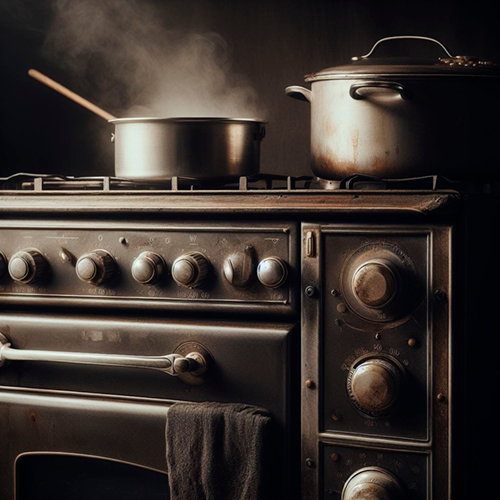Have you ever wondered how long ovens typically last? Is there a point in time when you should start considering a replacement? Let’s delve into the fascinating world of oven lifespan.
Understanding the Oven’s Lifespan
Your oven, a vital component of your kitchen, isn’t immortal. Just like any other household appliance, it has a finite lifespan. The duration of this lifespan is influenced by several key factors, which are worth exploring in detail:
- Standard Lifespan: On average, a well-maintained oven can serve you faithfully for approximately 10 to 15 years. However, this is a general estimate, and it’s important to note that some ovens may continue to perform well beyond this timeframe. The specific lifespan can vary depending on several factors, including the oven’s make, model, and usage.
- Quality Matters: The quality of your oven is a significant determinant of its longevity. Ovens from reputable brands known for their durability and craftsmanship tend to last longer than their cheaper counterparts. While investing in a high-quality oven may involve a larger upfront cost, it often pays off in the long run as these ovens tend to require fewer repairs and replacements.
- Maintenance Is Key: Regular maintenance plays a crucial role in extending your oven’s lifespan. Here’s how you can do it:
- Cleaning: Clean your oven regularly to remove food residue and grease. Not only does this prevent fires, but it also ensures that your oven operates efficiently. Grease and food buildup can affect heating elements and the overall performance of the oven.
- Timely Repairs: When issues arise, address them promptly. Delaying repairs can lead to more significant problems down the road. Minor issues can quickly escalate into major malfunctions, so it’s essential to nip them in the bud.
- Frequency of Use: The frequency at which you use your oven can impact its lifespan. Ovens that are used daily may experience more wear and tear compared to those used less frequently. While daily use isn’t a problem, it means that the oven’s components, including heating elements and fans, work harder and, as a result, may have a shorter lifespan. To extend the life of your oven, consider using it efficiently and only when necessary.
Signs Your Oven Needs Replacement

While ovens can last for a decade or more, there are clear signs that it’s time to consider a replacement. Here are some common indicators that your trusted kitchen companion might be reaching the end of its useful life:
- Inconsistent Heating: If your oven struggles to maintain a consistent temperature or if your dishes are unevenly cooked, it could be a sign of a failing heating element. This can lead to frustrating cooking experiences and disappointing results, indicating the need for a replacement.
- Visible Damage: Cracked glass doors, damaged seals, or rust are visible signs that your oven is deteriorating. These issues not only impact the oven’s performance but also pose safety concerns. Cracks can allow heat to escape and even pose burn risks.
- Frequent Repairs: If you find yourself frequently calling for oven repairs, it might be more cost-effective to invest in a new oven. Frequent breakdowns not only drain your wallet but also create inconvenience in your kitchen.
- Strange Noises: Unusual sounds like rattling, buzzing, or clanging can indicate mechanical issues that are best addressed with a new appliance. These noises often signal internal components wearing out or becoming loose, which can lead to further damage if ignored.
- Outdated Technology: Older ovens may lack modern features and energy efficiency. Upgrading to a newer model can save energy and enhance your cooking experience. Newer ovens often come equipped with advanced technology, including smart features that allow you to control and monitor your oven remotely, making cooking more convenient and efficient.
Tips for Extending Your Oven’s Lifespan
While the longevity of ovens depends on various factors, you can take proactive steps to ensure your oven remains in good working condition for as long as possible:
- Regular Cleaning: Clean your oven frequently to remove food spills and grease. This not only prevents fires but also keeps your oven operating efficiently.
- Proper Use: Adhere to the manufacturer’s guidelines for oven use. Avoid slamming the oven door, which can damage hinges, and use oven-safe cookware.
- Timely Repairs: When issues arise, address them promptly. Delaying repairs can lead to more significant problems down the line.
- Professional Maintenance: Schedule professional maintenance to inspect and service your oven, ensuring it’s in top shape.